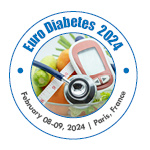
Martyn Pemble
Stokes Professor
Tyndall National Institute and University College Cork
Ireland
Biography
Prof Martyn Pemble (1955) joined the Tyndall National Institute in Cork in 2004 under an SFI Investigator Award entitled Novel Routes to the Production of Nanoscale Electronic and Photonic Materials via Chemical Self-Assembly and Templated Surface Engineering'. Prior to this he was Professor of Physical Chemistry and Associate Dean for Research in the Faculty of Science, Engineering and the Environment at the University of Salford in the UK. In November 2008 he was appointed to a Science Foundation Ireland funded post, that of Stokes Professor of Materials Chemistry. This position is a joint position, between the Tyndall National Institute and the Department of Chemistry at UCC. He has published over 270 papers and articles on topics ranging from electrochemical spectroscopic methods to fundamental surface science, through materials growth by metalorganic chemical vapour deposition (MOCVD), chemical vapour deposition (CVD) and atomic layer deposition (ALD), to optical spectroscopy and in-situ process monitoring, to novel photonic band gap materials based on synthetic opals and related systems. He is also the author of 2 patents in the CVD area. His h-index currently stands at 37.
Research Interest
Martyn Pemble's group studies the areas of advanced chemical vapour deposition (CVD) systems and atomic layer deposition (ALD) systems, including surface catalysed CVD, high-k dielectrics for advanced CMOS applications including III-V based MOSFETS, high performance capacitors and MIM-based devices, novel photochemically-activated water splitting devices, copper ALD and the ALD of copper diffusion barriers, the growth of novel oxides and doped oxides for smart window applications and other applications requiring transparent conducting materials such as solar cells and displays.

